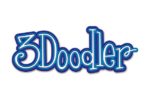Curriculum & Enrichment
- Arts Curriculum (41)
- Character Education (44)
- Creative Youth Development (32)
- English Language Learners (34)
- Environmental Education (58)
- Financial Literacy (38)
- Green Schools (20)
- History/Social Studies Curriculum (62)
- Homework Assistance (30)
- Literacy Curriculum (52)
- Math Curriculum (44)
- Outdoor Education (26)
- Physical Activity Curriculum (40)
- Project-Based Learning (29)
- Service Learning and Volunteer Programs (34)
- STEM Curriculum (84)
- Vocational Training (11)
Find content to support nearly any lesson, with more than 8,000 skills covering five subjects.
Created by experts, Khan Academy’s library of trusted, standards-aligned practice and lessons covers math K-12 through early college, grammar, science, history, AP®, SAT®, and more. It’s all free for learners and teachers.
Funded by the National Science Foundation, Math Snacks is a set of games and animations for middle school students that has brought math educators and learning theory researchers together with multimedia developers in a fruitful collaboration.
The free Semester of Service online course will enable educators to guide students in a semester-long activity that is directly linked to 21st Century Skills, using the tools and resources available in the Semester of Service Teacher Toolkit.
Recycle Rex is a spokesdinosaur for CalRecycle (Department of Resources Recycling and Recovery). His message is simple: “Recycle, reduce, reuse, and close the loop.” Recycling is one of the easiest and best things we can do for Planet Earth. By recycling and then buying recycled products for home, school and play, we can really make a difference.
A large resource of fun children’s games that have been tested and played by real kids. These are group games for kids (and adults!) that can be used for any occasion, especially summer camp or children’s programs.
Free 3Doodler lesson plans are made by teachers, for teachers. Filter by grade level, subject, educational standards, and more.
The Campaign for a Creative Generation is a global campaign working to ensure that the next generation reaches their full potential to solve society’s greatest challenges. With intergenerational leaders from around the world, the Campaign is dedicated to inspiring, connecting, and amplifying the work of individuals and organizations committed to cultivating the creative capacities of young people.
The graphic memoir They Called Us Enemy by George Takei is a great resource for teaching the Japanese American World War II experience. JANM is proud to share a teacher’s guide they developed for IDW Publishing to accompany Takei’s book.
To help educators integrate Black History Month into their classrooms, NEA offers a selection of lesson plans that cover a variety subjects and that can be adapted to fit multiple grade levels.
Democracy Class is a free, nonpartisan curriculum that educates high school students about the importance and history of voting and pre-registers and registers them to vote. Educators will have access to additional lesson plans featuring the history and importance of voting, modern-day voting rights, the importance of local elections, how voting can impact issues in communities, and the 2020 Census
Students will be able to determine the central ideas of a video about youth mobilization on plastic waste in the Amazon rainforest, analyze the causes of plastic pollution globally and make local connections, and use persuasive writing and visual arts skills to inspire change in their own communities








